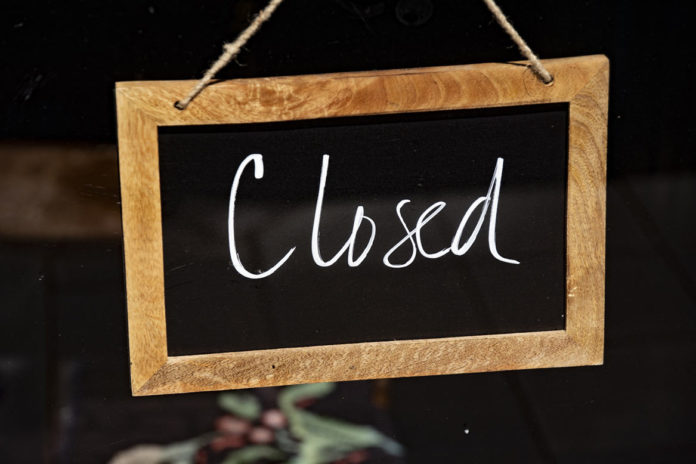
Statistics on restaurant failures range from 30-80% failure rate in the first five years. We’ve all seen a new restaurant open in our neighborhood and close before we even get a chance to sit down for a meal. It seems to be common knowledge that the restaurant industry has high failure rates but why aren’t we talking about why this is? Why do our restaurants seem to be more fragile than any other industry?
Opening a restaurant is often done with the best intentions, with a passion, sometimes in fulfillment of a lifelong dream but is often met with much more hardship than anticipated.
The issue seems even more relevant today as COVID-19 looms over us and more restaurants than ever have announced they are closing their doors – for good. What is it that makes this business so difficult? Why can’t a restaurant sustain a month long, or even a week long closure without closing up shop? The answer isn’t as simple as one single reason, it’s many, which is why the subject can be complicated and difficult to understand for new business owners. I’ll outline below two of the most basic reasons for high failure rates.
Not enough working capital
Often times, a build out of a restaurant costs two to three times more than anticipated, leaving owners with very little working capital to open their doors. We also see that when restaurants are under-capitalized they open too early, they are undertrained, understaffed and not prepared. Bad first impressions are very tough to recover from. There is a very little window in which you have to correct before your reputation is tarnished forever. There is also a huge misconception that once you open, the cash will start rolling in and you can cover your operating expenses from there. This is why you see a restaurant open then close what seems to be almost immediately.
The operating expenses of running a restaurant are very high, from cost of goods, payroll, tax burden, rent payments, the cost far outweighs the income for many years for some restaurant owners. Profit margins in the food industry are slim, so owners can’t expect to cover their expenses with sales for up to two years and even longer. Unless you have a steady stream of disposable income from elsewhere, the average person cannot afford to self-fund a restaurant for that long. It takes resourcefulness and hard work to pull it off, it is not for the faint of heart.
Inexperienced ownership
This might be one of the biggest reasons for restaurant closures. Understanding the sacrifices, the large operating costs, daily operations, budgeting, managing staff, etc. is something that comes with experience, training and study. The most important thing an owner can do before opening a restaurant is get some proper training or join the industry in some fashion if possible. Hands on experience is the best when it comes to this industry. These are two reasons out of many, the subject is complex and ever changing.
Today, as COVID-19 has forced temporary shutdowns, some restaurants won’t ever reopen. The initial burden of opening a restaurant was significant to each restaurant and more often than not yesterday’s sales are paying basic expenses for the next day. Owners are counting on that final night of sales before payroll is pulled from their accounts. The closure very likely drained bank accounts of many owners; who just can’t see a way out of the hole they most likely have already climbed out of many times before.
The phrase “where there’s a will there’s a way” is probably one of the important attitudes to have in the restaurant industry. Having the power and strength to fight for your business is key, never letting failure be an option. Adapt with the situation, find a way. My advice to owners is to become aware of the situation inside and out, stay ahead of it, learn all that you can to adapt to the needs and desires of your community. Preparation will be your biggest friend as we start to see a light at the end of this tunnel.
Restaurant closures are nothing new to us, but with each time a member from our community follows their dream and opens a restaurant only to close shortly after, our entire community mourns with them. This industry is filled with stories of perseverance and this pandemic will bring to light more of these stories in the coming months. We will see owners and staff push through this in beautiful ways. We will find ways to innovate and become better than ever. The owners and staff members in this tumultuous industry have never been ones to give up, and we won’t start now.
Megan Sanchagrin is founder of The Palomar Group, a hospitality consulting group that specializes in unique menu builds, restaurant turn-around and building profitable restaurant business plans. She can be reached at megan.sky@live.com.




